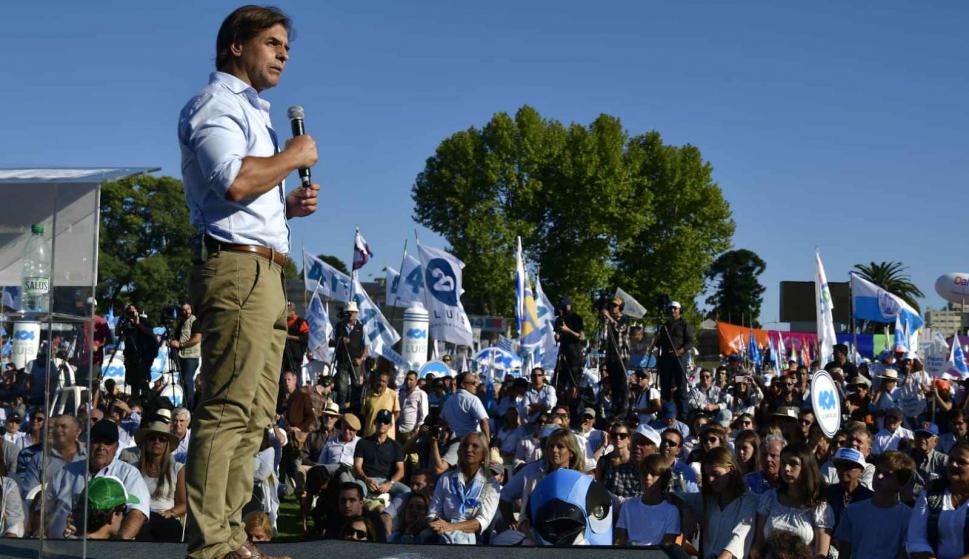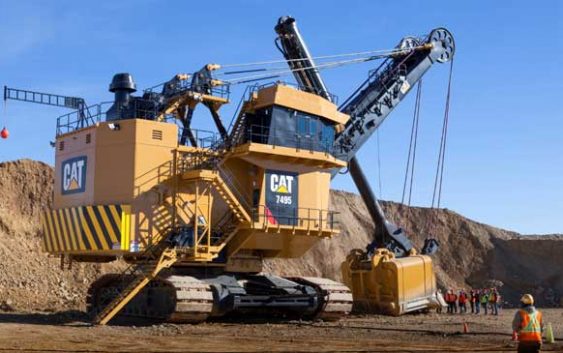The government of Sebastian Piñera and the opposition reached an agreement for a new constitution.
It will be the first time in history that Chile has a Magna Carta born from the democratic debate, because the previous ones -that of 1833, 1925 and 1980- were preceded by a civil war, noise of sabers and a coup d'etat. It is not clear that a new Constitution manages to appease the protests, which exploded on October 18th as an expression of a good part of the citizens who feel outside the path of development of Chile in recent decades. The political class, however, is committed to deliver a solid signal to the public, which has no confidence in any of the democratic institutions, revealing a serious state crisis. "
What will the history books say about what happened in the early hours of this Friday, November 15th? First they will say the basics. That on this day 90% of the political forces signed an agreement called "For Peace and a New Constitution."
They will say that this understanding initiated a process to write a new Magna Carta for Chile, starting with a plebiscite in April 2020, where it will be voted whether or not Chileans want to replace the current Constitution, and how they want to do it.
But the historical texts will also have to add that the transversal agreement was signed just four weeks after a violent outbreak that destroyed a relevant portion of the Santiago Metro network and that included looting, vandalism, church burns, public service headquarters, and of political parties.
The new constitution will carry this "prequel" and probably that will force it with greater reason for its elaboration to reach very high levels of legitimacy. That is what the political forces that signed the agreement tried, by establishing that the new fundamental laws must be approved by 2/3 of the constituent body that is defined via plebiscite. And then the full text must be ratified by a referendum where there will be a mandatory vote.
Anyway, what will start from today is a discussion about how this new constitution should be.
On November 15th, Chile achieved a pact to change its Magna Carta. But what is the agreement really about and why is it historic?
After 28 days of massive protests -in which the citizens demanded to end with a "system of abuses" and greater equality-, the Chilean political class reached a historic agreement around one of the main demands of the protesters: the change to the Constitution.
The negotiation was not easy. Leaders of all political sectors -with the exception of the Communist Party (PC)- remained long hours in Parliament discussing and trying to agree on a formula that would leave everyone more or less satisfied.
"Tonight is historic for Chile," said Senate President Jaime Quintana. "We are responsible, indeed, for many of the injustices that Chileans have pointed out to us," he said.
Broadly speaking, the pact established the convening of a referendum in April 2020 and in which Chileans will have to answer two questions: first, whether or not they want a new Constitution; and, second, what kind of body should write it.
Although it is still difficult to predict whether or not this will calm the rage of the protesters, various public figures -and of different political sectors- have positively valued the agreement and called for "social peace."
But what is consensus really about? Why is it historical?
1 - The most important points of the pact
The first most relevant point of the agreement is the realization of a plebiscite in April 2020 where Chileans must answer two questions:
* Do you want a new Constitution?
I approve or reject.
* What kind of body should write the new Constitution?
Constitutional mixed convention or constitutional convention.
What is the difference between both methods? While the "mixed constitutional convention" will be made up of 50% of parliamentarians in office and 50% of citizens elected for the occasion, the "constitutional convention" will consist only of citizens elected for that purpose.
With the result of the plebiscite, the election of the members that will make up any of these two instances will take place in October 2020 under universal suffrage. This will happen at the same time as the regional and municipal elections.
As a method of election, the agreement text states that "the same electoral system that governs the elections of deputies in the corresponding proportion will be used".
On the other hand, the pact of Chilean politicians points out that the term of operation of the constituent body in charge of drafting the new Fundamental Charter will be up to 9 months, extendable only once for three months.
This body must approve the voting rules and regulations of the same under a quorum of 2/3 (66.6%) of its members.
Sixty days after the delivery of the new constitutional text by this body, a ratifying referendum will be held with universal and mandatory suffrage.
Finally, the new Constitution will govern at the time of its promulgation and publication organically repealing the current Constitution (issued in 1980 during the Government of Augusto Pinochet).
Whatever the constituent body (mixed constitutional convention or constitutional convention), it must be dissolved once the task entrusted to it has been completed, that is, to write a new Fundamental Charter.
2 - Why is it historical ?
The political leaders who signed the pact considered this agreement "historic."
But how true is that statement?
The doctor of political science of the University College London (UCL), Javier Sajuria, explains to BBC Mundo that the historical character is due to the fact that "never in Chile has a Constitution been drafted by an elected body or with citizen participation."
"It has always been done by small groups, either experts or politicians, without much feedback during the process," says the academic.
On the other hand, there are those who say that it is historic due to the "breadth of the agreement", being signed from a party as conservative as the Independent Democratic Union (UDI) to members of the left-wing coalition called Frente Amplio.
Source: BBC, T13, El Libero, Author's notes


/arc-anglerfish-arc2-prod-infobae.s3.amazonaws.com/public/6KSND2CLVNGD5BKWXXUGETXLLM.jpg)








